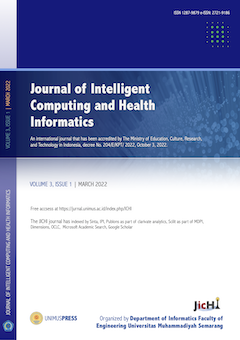A. Policy Statement
JICHI is committed to maintaining the accuracy, integrity, and completeness of the scholarly record. While all manuscripts are subject to rigorous peer-review and editorial scrutiny, situations may arise that require post-publication amendments, including corrections, retractions, withdrawals, or even removals. These measures are applied with utmost caution and only under well-defined circumstances. All actions follow the best practices outlined by the Committee on Publication Ethics (COPE).
B. Article Retraction
A published article may be retracted under the following circumstances:
- It contains significant errors that invalidate the conclusions (e.g., due to flawed data, miscalculation, or experimental error).
- It represents redundant or duplicate publication without proper citation or justification.
- There is evidence of ethical misconduct, such as plagiarism, falsification, fabricated data, or authorship disputes.
Retraction process:
- A retraction concern is submitted to the Editor-in-Chief.
- The editorial team reviews the case in accordance with the COPE flowcharts, including seeking the author's response.
- The case is referred to the Editorial Board or Ethics Committee for final consideration.
- A formal retraction notice is published, linked to the original article, and appears in the journal’s next issue.
- The article remains online with a clear watermark indicating its retracted status, unless legal reasons require removal.
Note: Authors who retain copyright do not have the right to unilaterally request retraction after publication. The editorial board will decide based on scientific merit and ethical standards.
C. Article Withdrawal (Pre-publication)
Authors are discouraged from withdrawing manuscripts after submission, as it consumes editorial and peer-review resources.
Withdrawal policies:
- If a manuscript is withdrawn during peer review, the author may be subject to an administrative processing fee of $200 USD.
- If withdrawal occurs after acceptance but before publication, a fee of $250 USD may be imposed.
- If the article has been published as “Article in Press” and later found to contain ethical or procedural violations (e.g., duplicate submission, authorship fraud), it may be formally withdrawn and replaced with a public withdrawal notice. An administrative fee of $300 USD applies.
All withdrawal requests must:
- Be submitted in writing.
- Include a formal letter signed by the corresponding author and authorized institutional representative.
- Be reviewed and approved by the Editor-in-Chief.
Failure to comply may result in a temporary submission embargo (up to 3 years) for the author or affiliated institution, at the discretion of the editorial board.
D. Article Correction
Corrections may be issued when a published article contains errors that do not invalidate the findings but require clarification. This includes:
- Minor but significant factual errors (e.g., data mislabeling, author name misspelling).
- Authorship errors (e.g., missing author, incorrect contributor attribution).
Types of corrections:
- Erratum (Publisher Correction): Mistakes introduced during the production process.
- Corrigendum (Author Correction): Mistakes originating from the authors.
- Addendum: Additional information or clarification that supplements the original article.
The Editor-in-Chief, in consultation with the editorial board and possibly the reviewers, decides whether and what kind of correction is appropriate.
E. Article Removal
In exceptional circumstances, an article may be removed from the online archive, such as:
- Proven defamation or legal violation (e.g., copyright infringement).
- Enforced by court order.
- Risk to public health or safety if the article is acted upon.
In such cases, the metadata will remain, but the full-text content will be replaced with a notice indicating removal and the reason behind it.
F. Article Replacement
If an article contains critical flaws that pose risks (e.g., public health misinformation), the authors may request to replace it with a corrected version. The original article will be retracted following standard procedure, and a link to the revised version will be provided in the retraction notice.
G. Editorial Responsibility
The final decision on retraction, withdrawal, correction, or replacement rests with the Editor-in-Chief, in consultation with the Editorial Board, and in alignment with COPE principles and journal policy. All decisions will be transparently documented and communicated to the authors.








